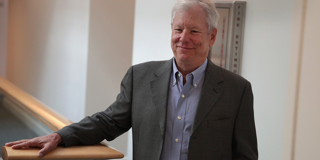Richard Thaler has shown in his research how to focus economic inquiry more decisively on real and important problems. His research program has been both compassionate and grounded, and he has established a research trajectory for young scholars and social engineers that marks the beginning of a real and enduring scientific revolution.
NEW HAVEN – The winner of this year’s Nobel Memorial Prize in Economic Sciences, Richard Thaler of the University of Chicago, is a controversial choice. Thaler is known for his lifelong pursuit of behavioral economics (and its subfield, behavioral finance), which is the study of economics (and finance) from a psychological perspective. For some in the profession, the idea that psychological research should even be part of economics has generated hostility for years.
Not from me. I find it wonderful that the Nobel Foundation chose Thaler. The economics Nobel has already been awarded to a number of people who can be classified as behavioral economists, including George Akerlof, Robert Fogel, Daniel Kahneman, Elinor Ostrom, and me. With the addition of Thaler, we now account for approximately 6% of all Nobel economics prizes ever awarded.
But many in economics and finance still believe that the best way to describe human behavior is to eschew psychology and instead model human behavior as mathematical optimization by separate and relentlessly selfish individuals, subject to budget constraints. Of course, not all economists, or even a majority, are wedded to this view, as evidenced by the fact that both Thaler and I have been elected president, in successive years, of the American Economic Association, the main professional body for economists in the United States. But many of our colleagues unquestionably are.

NEW HAVEN – The winner of this year’s Nobel Memorial Prize in Economic Sciences, Richard Thaler of the University of Chicago, is a controversial choice. Thaler is known for his lifelong pursuit of behavioral economics (and its subfield, behavioral finance), which is the study of economics (and finance) from a psychological perspective. For some in the profession, the idea that psychological research should even be part of economics has generated hostility for years.
Not from me. I find it wonderful that the Nobel Foundation chose Thaler. The economics Nobel has already been awarded to a number of people who can be classified as behavioral economists, including George Akerlof, Robert Fogel, Daniel Kahneman, Elinor Ostrom, and me. With the addition of Thaler, we now account for approximately 6% of all Nobel economics prizes ever awarded.
But many in economics and finance still believe that the best way to describe human behavior is to eschew psychology and instead model human behavior as mathematical optimization by separate and relentlessly selfish individuals, subject to budget constraints. Of course, not all economists, or even a majority, are wedded to this view, as evidenced by the fact that both Thaler and I have been elected president, in successive years, of the American Economic Association, the main professional body for economists in the United States. But many of our colleagues unquestionably are.